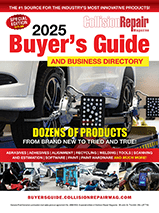Insights Highlight the Most Popular Delivery Times, Items and Platforms and Potential Impact of New Legislation on the Industry
BOSTON–(BUSINESS WIRE)–#SuperBowl—Motus, the definitive leader in reimbursement solutions for businesses with mobile-enabled workforces, today released its new report, “The Shifting Landscape of Delivery Trends.” The report examines the current state of delivery in the U.S. and identifies trends. Some of those trends include popular delivery times, items and platforms, key differences of in-house vs. third-party delivery drivers and the potential impact new legislation could have on the entire delivery industry.
According to the report, Motus estimates that there will be 2.6 billion food deliveries made in 2020 to 101 million delivery users in the U.S. Of those deliveries, 48 million people across the country will order delivery on Super Bowl Sunday, one of the biggest food delivery days of the year with 80% of people planning to order out. During the game, pizza chains normally sell 30-40% more slices than they sell on a typical Sunday. A surprising 3% of all third-party food deliveries for 2020 will occur on this single day.
The report also found that the third-party delivery market is rapidly gaining scale, growing nearly five times faster than the total food industry. Since 2017, the delivery provider landscape has consolidated to the four companies dominating third-party delivery: DoorDash (37%), Grubhub (30%), UberEATS (20%) and Postmates (10%), with other services rounding out the remaining 3% of the market. These services will account for 70% of all delivery orders by 2022, with the user base expected to increase 53% by 2024. The report additionally discovered that location makes a difference on which delivery service users prefer. In Los Angeles, Postmates is a favorite, while users in Seattle tend to use UberEATS. Boston and Chicago users gravitate more towards Grubhub for their respective areas.
“As the food delivery market continues to evolve, it’s important for restaurants to evaluate the costs associated with in-house vs. third-party delivery, as driver wages are a huge factor,” said Ken Robinson, market research analyst for Motus.” In the same regard, it’s crucial that delivery drivers understand what their options are when considering a career in food delivery. One of the biggest considerations is transportation cost and reimbursement. The cost to drive can vary widely among U.S. cities, so a flat delivery fee or estimated mileage allowance may not be an accurate or fair reflection of the actual costs to complete a delivery.”
To illustrate this concept, the report compared delivery driving costs across major U.S. metros and found that the costs to make a delivery in Los Angeles are about 14% higher than a worker making a similar delivery in Boston. The report also breaks down how big of a difference mileage reimbursement can make in daily earnings, highlighting how reimbursement can even offset the difference in reported hourly wage.
“A growing number of states are adopting laws that require employers to make employees whole when they use personal assets like vehicles or mobile devices for work purposes,” said Danielle Lackey, Chief Legal Officer of Motus. “Simultaneously some states are seeking to expand the definition of ‘employee’ to include a broader worker-base. California recently made headlines when it signed Assembly Bill 5 (AB5) into law, changing how the distinction between independent contractors and employees is evaluated. Even while AB5’s application is working its way through the courts, it reflects a growing trend of greater scrutiny regarding fair and accurate worker compensation. It’s crucial that employers stay ahead of this if they want to avoid becoming the target of a costly lawsuit.”
To access the full report, please visit: https://resources.motus.com/reports/shifting-delivery-trends-report
About Motus
Motus is the definitive leader in solutions for businesses with mobile-enabled workers and fleets of any size. The Motus technology platform simplifies both mileage and mobile device reimbursement with proprietary software that calculates personalized and compliant reimbursements for each employee, while improving employee productivity and reducing the overall costs of mobility. The company’s data, captured and analyzed across the world’s largest retained pool of drivers, also underpins the annual Internal Revenue Service (IRS) business mileage standard, the amount an individual can deduct for business vehicle expenses. For more information please visit www.motus.com or connect with us on Twitter, Facebook, Instagram or LinkedIn.
Contacts
Nicole Rosenberg
fama PR for Motus
617-986-5041
motus@famapr.com



















